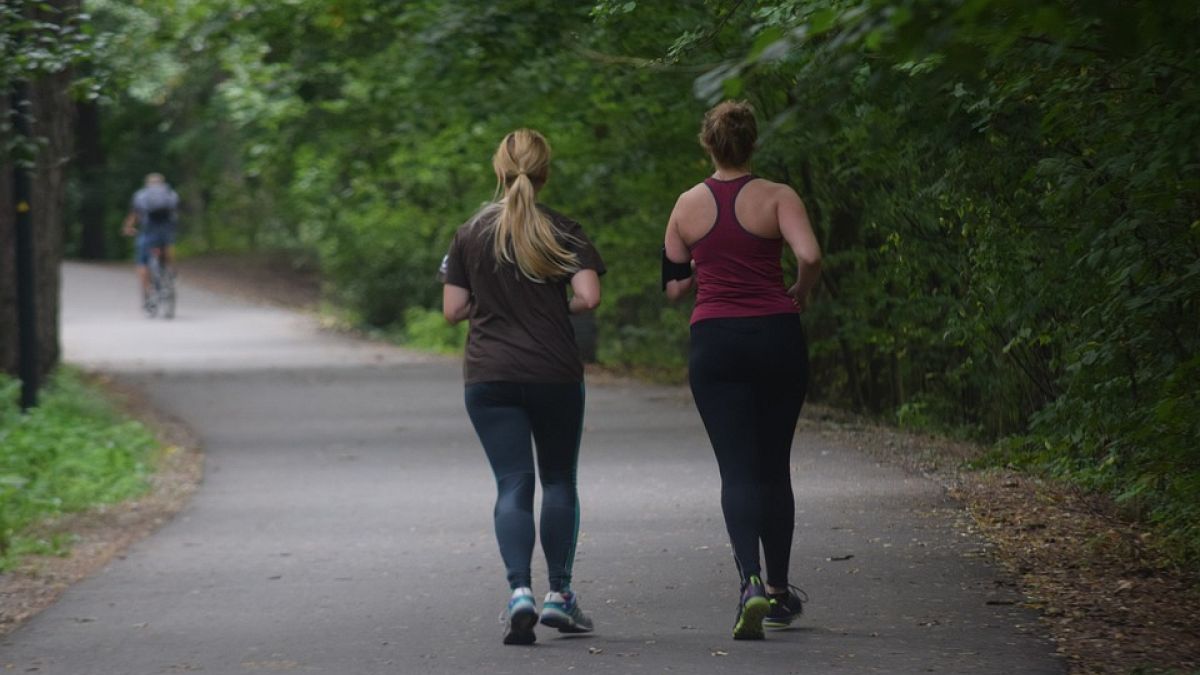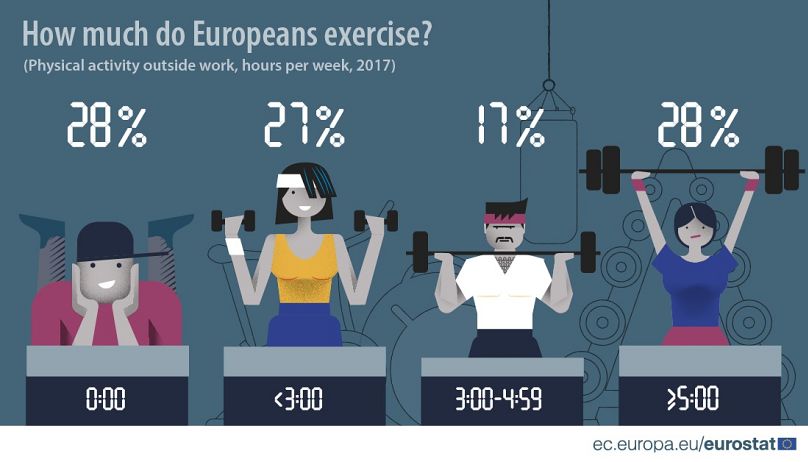Portugal and Croatia were found to be the only two EU countries were a majority of the population does not carry out any physical activity outside working time.
More than a quarter of Europeans do not practice any kind of exercise outside working hours, latest figures from Eurostat reveal.
According to data released on Thursday, 28% of Europeans did not carry out any kind of exercise in their leisure time in 2017.
But the data shows that a vast majority did, with 27% undertaking some form of sports, fitness or recreational activities for fewer than 3 hours per week, another 17% doing so for up to five hours and a further 28% doing more than 5 hours of exercise weekly.
Best and worst countries
The trend was confirmed in all but two countries, Portugal and Croatia, where only 45% and 36% of the population perform physical activity outside working time respectively. The most active countries were found to be Romania (96%), Denmark (93%) and the Netherlands (91%).
A Eurobarometer published in March 2018 found that 15% of Europeans do not walk 10 minutes at a time at all in a weekly period, and 12% sit for more than 8.5 hours per day.
The main barrier for participation in sport or physical activity was lack of time, according to 40% of respondents.
Overall, levels of participation in sports or physical activity were found to have stagnated since 2013 despite measures taken to increase participation.
The report also revealed that men engage in physical activity more than women, with the disparity growing among younger people. Lower levels of education and financial difficulties were also found to have an impact.

